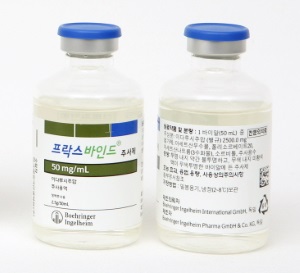Several drugs that reverse the blood thinning effect of non-vitamin K oral anticoagulants (NOAC) have arrived in the global market, but it will take some time for Korean physicians to use them, experts said. Representative NOAC reversal agents are used against Pradaxa (ingredient: dabigatran), Eliquis (apixaban), and Xarelto (rivaroxaban).
The NOAC market has expanded rapidly as NOACs lowered the bleeding risk in stroke prevention treatment for atrial fibrillation patients, compared to warfarin.
The Korean Heart Rhythm Society (KHRS) recently announced that primary medical institutions should expand NOAC prescriptions so that stroke can be prevented in more patients with atrial fibrillation. The society’s claim assumes that NOACs are easier to use, have a better anticoagulant effect and are safer, compared to warfarin.
However, others are voicing for the preparation of reversal agents, in case of rare but fatal bleeding risk coming from NOACs.
Roh Tai-ho, a professor at cardiology department at the Catholic University of Korea St. Paul's Hospital, said NOACs and all the other anticoagulants have adverse effects. “Most side effects are not serious, but some are life-threatening, although rare,” he said.
Pradaxa is the only NOAC that has an antidote.
“Fatal bleeding associated with NOAC is extremely rare, but it is very important to have a reversal agent to be used in an emergency,” Roh said.
Boehringer Ingelheim, which developed the first NOAC Pradaxa, rolled out the first reversal agent called Praxbind (idarucizumab).

Praxbind obtained conditional approval from the U.S. Food and Drug Administration in September 2015 and the nod from the Ministry of Food and Drug Safety in Korea in March 2016. It started to get insurance benefit from February this year.
Other reversal agents have been developed and commercialized in the U.S. to be used against factor Xa inhibitors such as Eqliquis, Lixiana, and Xarelto.
In May last year, the FDA granted conditional approval for Andexanet alfa (Andexxa in the U.S.), developed by Portola Pharmaceuticals. The European authorities are reviewing for approval of Adexanet alfa (Ondexxya in Europe).
The KHRS recommended Andexanet alfa as a NOAC reversal agent in its guideline for NOAC use in patients with atrial fibrillation. “Andexanet alfa may be the first choice to treat fatal bleeding caused by factor Xa inhibitors,” the society said.
If Andexanet alfa arrives in Korea, all NOAC products will be equipped with antidotes. However, it will take several years to introduce Andexanet alfa in Korea, According to Roh.
To use the drug in Korea, there are too many steps to be taken such as regulatory approval, review for the national health insurance coverage, and drug pricing negotiations, he said.
“Not only tertiary but primary institutions should provide NOACs for more patients to prevent stroke, Roh said. “However, NOACs are still new to physicians at the clinic level, and their mechanisms are complex. They are also expensive, and physicians worry that they might suffer cutbacks in reimbursement of NOACs.”

